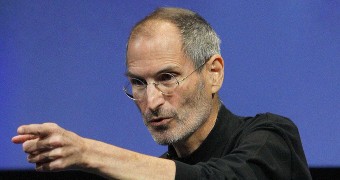More information has been released about Apple’s ongoing lawsuit with consumers in a class action that went to trial yesterday. Apparently, the Cupertino behemoth went as far as to intentionally delete music that didn’t make its way onto iPods via iTunes.
The move is being accused by plaintiffs in the case – a group of customers bust also business owners – asking the Court to force Apple to cough up $350 million / €284 million in damages.
“The system was totally hacked”
Evidence supplied in the case includes a videotaped deposition by the late Steve Jobs as well as email exchanges between top executives at the company. An email from Jobs was read as part of the plea. The late Apple co-founder is quoted as saying to iTunes boss Eddy Cue, “Someone is breaking into our house.”
Jobs was referring to piracy, something he had learned was going on and involved the popular music players sold by Apple. One of the company’s primary reasons with iTunes and the iPod was to eradicate piracy and create a lucrative business model with the music industry. People still love to get their music for free to this day, but there’s another side to this story as well.
According to the plaintiffs, Apple updated the iPods’ firmware, which ultimately erased the users’ music library. Anything that didn’t come from iTunes was gone.
Attorney Patrick Coughlin said Apple had instructed the system “not to tell users the problem,” but Apple Security Director Augustin Farrugia clarified Apple’s position: “We don’t need to give users too much information” and “We don’t want to confuse users.”
Apple was “hacked”
Farrugia went as far as to state that Apple was, in a way, getting hacked. Apple had become “very paranoid” about iTunes, amidst the emergence of hackers like “DVD Jon” and “Requiem.”
According to the Wall Street Journal, “Updates that deleted non-Apple music files were intended to protect consumers from those system break-ins. ‘The system was totally hacked,’ he said.”
The comments refer to Real Networks’ RealPlayer application (and not only), which was designed to swap music between iPods and computers bypassing Apple’s restrictions. Apple had set in place some rules for downloading and playing music on iPods to thwart piracy and get money in the hands of the music labels, as well as turn a profit for themselves.
This thing is now backfiring not because Apple was a control freak in those days (which it was, no doubt about it), but because users received no warning that their iPods would lose all their music if restored, or a reason why it was necessary to restore them.

 14 DAY TRIAL //
14 DAY TRIAL // 

